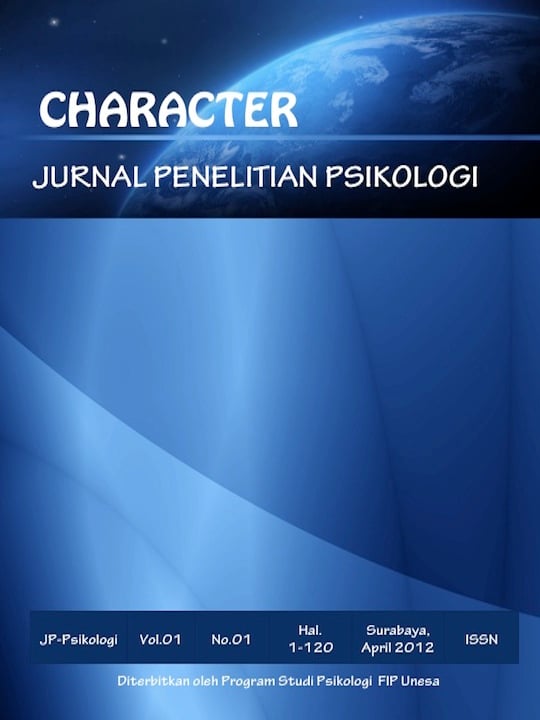PENYESUAIAN DIRI PADA ORANG TERLANTAR DI TEMPAT PEMBINAAN SOSIAL: SEBUAH STUDI KASUS
DOI:
https://doi.org/10.26740/cjpp.v9i1.44992Abstract
Abstrak.
Penelitian ini bertujuan untuk mengetahui penyesuaian diri pada gelandangan dan pengemis yang mendapatkan pembekalan dan pembinaan sosial. Penelitian ini menggunakan metode kualitatif dengan pendekatan studi kasus. Data diperoleh melalui wawancara semi-terstruktur dengan empat orang terlantar yang berada di rehabilitasi dengan jenis kelamin pria dan perempuan dengan rentang usia 25-60 tahun. Data yang terkumpul dianalisis menggunakan analisis deskriptif. Berdasar analisis data, ditemukan bahwa penyesuaian diri dari para orang terlantar ini berbentuk penyesuaian diri dengan pegawai dan kegiatan. Peneliti juga menemukan bahwa penyesuaian diri pada orang terlantar dipengaruhi oleh latar belakang pendidikan, latar belakang tingkat ekonomi, dan usia.
Kata Kunci:
Penyesuaian Diri, Orang Terlantar, Pembinaan Sosial
Abstract.
This study examine the adjustment of homeless and beggars who receive social security programme. It uses a case study qualitative method. Four female and male homeless, age 25-60, serve as subject of this research. It employs semi-structure interview to collect data. Based on descriptive analysis, this research finds out that homeless make personal adjustment to activities and social workers. It also discovers that their adjustment is affected by educational background, economic status background, and age.
Keywords:
Adjustment, Abandoned People, Social Development
Downloads
Published
How to Cite
Issue
Section
License
Authors who publish in this journal agree to the following terms:
Copyright in any article is held by the author.
The author grants the journal, publication rights with the work simultaneously licensed under a Creative Commons Attribution License that allows others to share the work with an acknowledgment of the work's authorship and initial publication in this journal.
Authors may enter into separate, additional contractual arrangements for the non-exclusive distribution of the journal's published version of the work (e.g., posting it to an institutional repository or publishing it in a book), with an acknowledgment of its initial publication in this journal.
Authors are permitted and encouraged to post their work online (e.g., in an institutional repository or on their website) prior to and during the submission process, as this can lead to productive exchanges, as well as earlier and greater citation of published work.
 Abstract views: 205
Abstract views: 205





